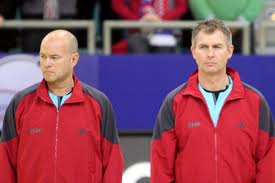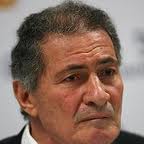The main rising star in European club handball in recent years has undoubtedly been AG Copenhagen (AGK). Not that Denmark is a newcomer at the top level in men’s handball, but the collection of stars that suddenly was acquired for this newly founded club is at par with some very few top clubs in Germany and Spain. Indeed, AGK qualified for the ‘Final Four’ of EHF Champions League in 2011-12, where they narrowly lost to Atletico Madrid. AGK has at least a dozen absolute world-class players, so that even their second choice on each position would combine into a top team.
While there have been some hints about the financial status of AGK in recent time, it nevertheless came as a real surprise when the founder and main owner, well-known businessman Jesper ‘Kasi’ Nielsen announced that he was withdrawing from AGK and would be selling off his involvement. Officially, he indicated that he was doing so because of the ‘smear campaign’ against him in one Danish newspaper (Ekstrabladet). This is not seen as a very credible explanation by experts in media, academics, federation and other clubs. They point to the stories about severe financial problems and also note that Nielsen would never leave his creation if it was doing well from a business and investment standpoint. There are also indications that some of AGK’s smaller sponsors are pulling out.
It is pointed out that Nielsen has almost treated AGK as a toy, something to have fun with and to enjoy on the side of his real business, which has now ended up having really major problems. But it has taken absolutely enormous investments of money to buy all these top players and to pay their hefty salaries. And everyone knows that club handball, even at the absolute top level, is not really a money maker, at least not in Denmark. So the expectation is now that the managers and other key persons in the club are struggling to keep the club going, but that this soon will have to take place at a much more modest level. Perhaps the AGK can keep enough competent top players to remain a good club in Denmark but not a serious challenger at the European level. But if there is no money to pay the players, then the situation could become even more fragile.
From last year’s team AGK has players such as Mikkel Hansen, Joachim Boldsen, Olafur Stefansson, Snorri Gudjonsson, Henrik Toft Hansen, Niklas Ekberg, and goalkeepers Kasper Hvidt and Steinar Ege. New acquisitions for 2012-13 include Kim Andersson, Carlos Prieto and Fredrik Petersen. Clearly, some of these players cannot be kept. Transfer income and salary reductions are necessary. So there is of course great unrest among the players, who have not yet been paid their Champions League bonuses for last season and now have to begin to wonder who are the ones on the trading block. The top players, such as Hansen, would yield more but their departure would obviously hurt the team strength more. And a real problem is that there may not be any buyers. A quick check among some German top teams reveals that they consider their rosters set, so close to the start of the next season. They do not need more players, and they do not have money for more.
As some readers know, AGK is not the only club that has depended on Nielsen’s ‘generosity’. Rhein-Neckar-Lowen have had him as their main sponsor for some years. In fact, he was the owner, until both AGK and RNL qualified for Champions League and EHF ruled that two participants could not have the same owner. So Nielsen stepped down but remained a sponsor. While RNL’s financial situation and continued existence as a top team does not appear threatened, there are reports that Nielsen has unpaid contractual obligations to the team in the order of about 15 Million Euro, and that his house in Spain has been taken as a security, as he does not seem able to fulfill his contract. In other words, a real mess! People do not seem to doubt that Nielsen has essentially acted in good faith; he just has not been able to appreciate the ramifications of his extravagant spending. It will be interesting to follow the outcome.













